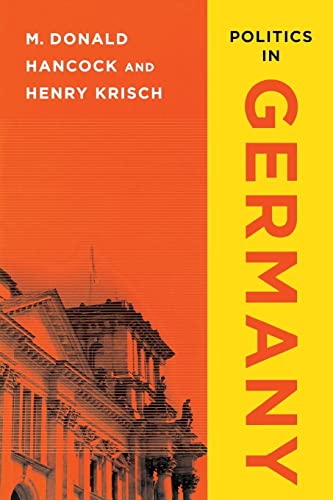Politics in Germany
Availability :
In Stock
₹ 4,264.00
M.R.P.:₹ 5330
You
Save: ₹1,066.00 (20.00% OFF)
(Inclusive
of all taxes)
Delivery:
₹ 0.00 Delivery charge
Author:
M Donald Hancock
Publisher:
CQ Press
Edition:
1st Edition
ISBN-13:
9781933116075
Publishing Year:
2010-07-01
No. of Pages:
203 pages
Weight:
410 grm
Language:
English
Book Binding:
Paperback











